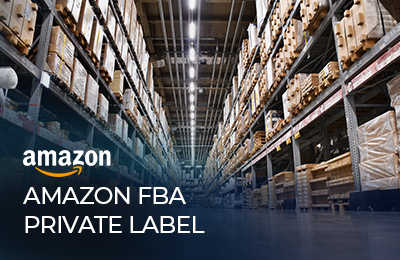
Private Label Definition
In the realm of e-commerce and entrepreneurship, the term “Private Label” has gained significant traction. It represents a powerful strategy for creating a distinctive brand identity by affixing your logo onto an existing product. This approach allows entrepreneurs to offer products with their unique touch, even if the core product remains the same. Let’s delve into the nuances of Private Labeling and how it can transform your business.
Private Label Definition The Essence of Private Labeling
At its core, Private Labeling involves rebranding an existing product, often sourced from a manufacturer or supplier. This practice empowers entrepreneurs to infuse their brand’s identity into a product without delving into the intricacies of manufacturing. Imagine a scenario where supplements, for instance, bear different logos but contain identical content. This exemplifies the essence of Private Labeling – it’s not about reinventing the wheel, but rather adding your distinctive mark to an established product.
Private Label Definition Unlocking Business Potential on Amazon
Amazon, being a global e-commerce powerhouse, provides a fertile ground for various business models. Three prominent models stand out:
Retail Arbitrage: Sourcing and Selling Smart
Retail Arbitrage is akin to a treasure hunt. It involves scouring local stores or online marketplaces for underpriced products that can be resold at a higher price on Amazon. While it offers a relatively low barrier to entry, it can be time-consuming, requiring diligence in spotting profitable opportunities.
Wholesale: Nurturing Supplier Relationships
Wholesale entails building robust relationships with suppliers and purchasing products in bulk. This model offers scalability and the potential for healthy profit margins. However, it demands a significant investment of time and effort in cultivating supplier connections.
Private Label Definition (Amazon FBA): Crafting Your Brand’s Identity
Private Labeling, particularly through Amazon’s Fulfilled by Amazon (FBA) program, stands as a beacon for entrepreneurs seeking to establish their brand. This model allows you to create your own label, affix it to products sourced from manufacturers, and leverage Amazon’s extensive fulfillment network. It’s a scalable and hands-off approach that empowers you to focus on brand growth and marketing.
Navigating Fulfillment by Amazon (FBA)
Fulfillment by Amazon (FBA) represents a game-changer in the world of e-commerce. By utilizing Amazon’s vast network of fulfillment centers, you can send your inventory to Amazon, who then takes charge of individual orders, including storage, packaging, and shipping. This approach offers a level of scalability and convenience that is unmatched, allowing you to focus on growing your brand.
Deciding on the Right Business Model
Choosing the right business model is pivotal for success in the world of e-commerce. Each model has its unique advantages and considerations:
Retail Arbitrage: Quick Entry, Time-Intensive
Retail Arbitrage offers a swift entry into the market. However, it requires a substantial investment of time in sourcing and evaluating products for profitability.
Wholesale: Relationship-Driven, Scalable
Wholesale necessitates the cultivation of supplier relationships, which can lead to long-term benefits. It’s a more scalable option compared to Retail Arbitrage.
Private Label Definition: Brand Building, Scalability, and Automation
Private Labeling is a powerhouse for brand building. It provides the opportunity to create a distinct identity and offers a scalable, hands-off approach to business operations.
Researching Products: The Key to Success
Before diving into any business model, thorough product research is paramount. Tools like Helium 10 can be invaluable in analyzing demand, competition, and potential profits. Look for products with manageable competition and healthy profit margins to set yourself up for success.
Private Label Definition Seizing the Amazon Opportunity
Amazon’s expansive marketplace provides a fertile ground for entrepreneurs to introduce unique products. Private Labeling grants you the ability to forge your brand’s identity and stand out in a sea of offerings. This presents an opportunity to tap into high-demand products with your unique twist.
FAQs:
1. How do I choose the right business model for me?
Selecting the right business model depends on your resources, goals, and level of involvement. Consider factors like initial investment, scalability, and time commitment before making a decision.
2. Is Private Labeling limited to specific industries?
Not at all. Private Labeling can be applied to a wide array of industries, from beauty and health products to electronics and beyond. It’s all about finding the right products and establishing your brand’s identity.
3. How can I ensure the quality of Private Label products?
Choosing reputable manufacturers or suppliers and conducting thorough quality checks is essential. Additionally, maintaining open communication and overseeing the production process can help uphold product quality.
In conclusion, Private Labeling offers a potent avenue for entrepreneurs to establish their brand in the competitive e-commerce landscape. By infusing your unique identity into existing products, you unlock the potential for growth and differentiation. With the right approach and research, Private Labeling can be a game-changer in your entrepreneurial journey.
Read our full guide here: Overview of Amazon Service Providers: A Comprehensive Guide 2024
